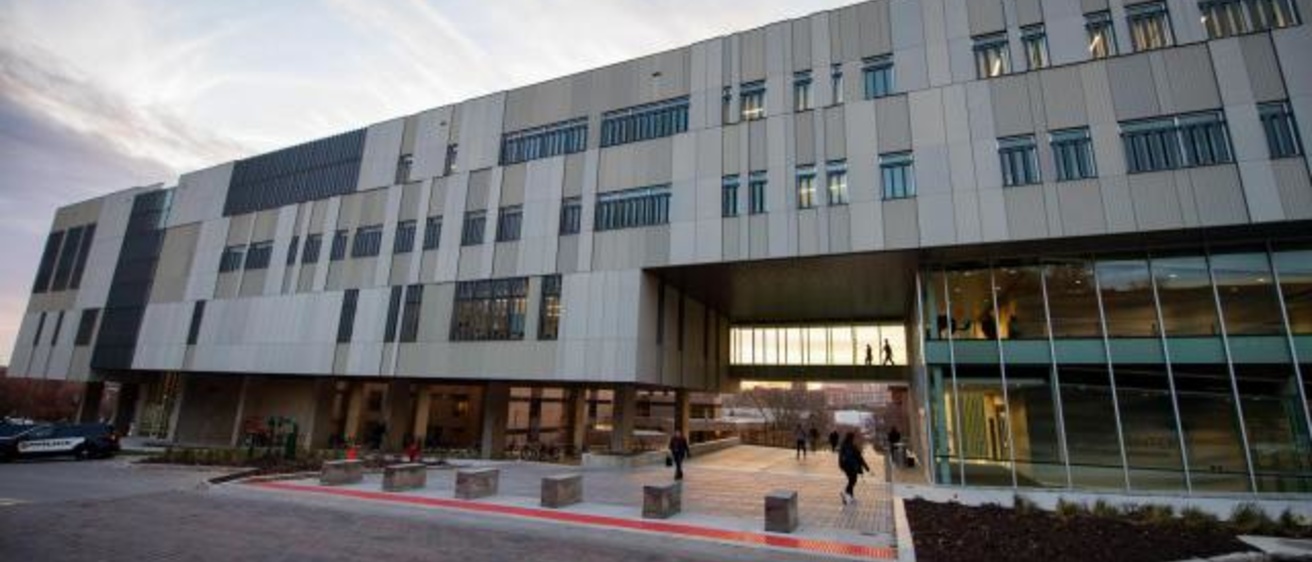On December 16, 2019, the College of Engineering Faculty passed a climate and sustainability resolution. The resolution follows similar votes by the University of Iowa Faculty Council, the Alliance of Big 10 Alliance of Student Governments, and other shared governance organizations on campus. The full resolution can be found below:
A RESOLUTION IN SUPPORT OF RENEWING CLIMATE, ENERGY AND SUSTAINABILITY LEADERSHIP AT THE UNIVERSITY OF IOWA
WHEREAS, numerous recent reports, including peer-reviewed scholarship, government reports, and intergovernmental reports, have (1) synthesized recent research on existing and impending climate change impacts, including but not limited to major impacts on hydrological systems, extreme weather events, sea level rise, agricultural and fisheries, ecosystem disruption, economic well-being and quality of life, refugee migration, and mass extinction of animals and plants; (2) highlighted the increasing risks from multiple climate impacts occurring simultaneously; (3) explained the growing understanding of possible nonlinear “tipping points” of sudden irreversible climate system change; (4) stressed the need for rapid mitigation and adaptation; and (5) revised downward the target for avoidance of dangerous interference with the climate system from 2°C to 1.5°C;[i],[ii],[iii],[iv],[v],[vi],[vii],[viii],[ix],[x],[xi],[xii],[xiii]
WHEREAS, numerous representative bodies relevant to the University of Iowa, and to the College of Engineering, have passed resolutions in 2019 calling for aggressive campus action and leadership by the University of Iowa:
- The Alliance of Big Ten Student Governments unanimously declared a Climate Emergency, based on a resolution initiated by the University of Iowa Student Government (July 2019);[xiv]
- The City of Iowa City passed a Resolution declaring a climate crisis and requesting immediate and accelerated action to address the climate crisis (August 2019);[xv]
- The University of Iowa Student Government and the Graduate and Professional Student Government passed a joint resolution “In Support of Implementing a Climate Change Adaptation and Mitigation Effort” (November 2019);[xvi]
- The University of Iowa Faculty Council passed a resolution “Expressing the Faculty Senate and Staff Council’s Commitment to Sustainability and Environmental Stewardship at the University of Iowa” (November 2019);[xvii]
WHEREAS, on April 22, 2016, world leaders from 175 countries recognized the threat of climate change and the urgent need to combat it by signing the Paris Agreement, agreeing to keep warming “well below 2°C above pre-industrial levels” and to “pursue efforts to limit the temperature increase to 1.5°C;” [xviii]
WHEREAS, higher education and the disciplines of engineering have a duty and an opportunity to confront these through education, evidence-based research, technological advancement, and innovation;
NOW, THEREFORE, BE IT RESOLVED, that the faculty of the University of Iowa College of Engineering affirm the urgent need to take meaningful and responsible action to address the issue of our changing climate.
BE IT FURTHER RESOLVED, that the faculty of the University of Iowa College support the students of the University of Iowa in their efforts to maintain and reinvigorate the University’s position as a leader in operational, educational, and research aspects of energy and climate change.
BE IT FURTHER RESOLVED, that the faculty of the University of Iowa College of Engineering commit to partnering with the Engineering Dean’s office, central administrative officials, shared governance leaders, and campus-based sustainability experts on an immediate and ongoing basis to develop and implement viable methods to reduce greenhouse gas emissions and mitigate the causes and effects of changes to the climate system.
BE IT FURTHER RESOLVED, that the Engineering Faculty Council shall send a copy of this resolution to relevant stakeholders at the University of Iowa including the Office of the Provost, the Office of the President, the Office of Sustainability and the Environment, and the other Colleges and Academic Units of the University of Iowa.
[i]. “Special Climate Report: 1.5ºC Is Possible But Requires Unprecedented and Urgent Action - United Nations Sustainable Development.” United Nations, United Nations, www.un.org/sustainabledevelopment/blog/2018/10/special-climate-report-1-5oc-is-possible-but-requires-unprecedented-and-urgent-action/.
[ii] “New Federal Climate Assessment for U.S. Released.” National Oceanic and Atmospheric Administration, www.noaa.gov/news/new-federal-climate-assessment-for-us-released.
[iii] Steffen et al., Trajectories of the Earth System in the Anthropocene. PNAS, 2018. https://doi.org/10.1073/pnas.1810141115.
[iv] Hughes, et al., Global warming transforms coral reef assemblages. Nature, 2018. https://www.nature.com/articles/s41586-018-0041-2
[v] Pattyn, et al., The Greenland and Antarctic ice sheets under 1.5 °C global warming. Nature Climate Change (2018). https://www.nature.com/articles/s41558-018-0305-8
[vi] Millar, et al., Emission budgets and pathways consistent with limiting warming to 1.5 °C. Nature Geoscience (2017). https://www.nature.com/articles/ngeo3031
[vii] Leach et al., Current level and rate of warming determine emissions budgets under ambitious mitigation. Nature Geoscience (2018). https://www.nature.com/articles/s41561-018-0156-y.
[viii] Mora et al. Broad threat to humanity from cumulative climate hazards intensified by greenhouse gas emissions. (2018) Nature Climate Change. https://www.nature.com/articles/s41558-018-0315-6
[ix] Martinich and Crimmins, Climate damages and adaptation potential across diverse sectors of the United States. Nature Climate Change (2019). https://www.nature.com/articles/s41558-019-0444-6
[x] Ricke, et al. Country-level social cost of carbon. Nature Climate Change (2018). Doi: 10.1038/s41558-018-0282-y.
[xi] Sanchez-Bayo, et al. Worldwide decline of the entomofauna: A review of its drivers. Biological Conservation (2019). Doi: 10.1016/j.biocon.2019.01.020.c
[xii] IPBES. 2019. Summary for policymakers of the global assessment report on biodiversity and ecosystem services of the Intergovernmental Science-Policy Platform on Biodiversity and Ecosystem Services. https://ipbes.net/global-assessment.
[xiii] United Nations Environment Program. 2019 Emissions Gap Report. https://www.unenvironment.org/resources/emissions-gap-report-2019
[xiv] University of Iowa Office of Sustainability and the Environment. “UI students lead B1G student governments in declaring climate emergency on Big Ten institution campuses, beyond”. https://sustainability.uiowa.edu/news/ui-students-lead-b1g-student-governments-declaring-climate-emergency-big-ten-institution
[xv] Gazette. “Iowa City Declares Climate Crisis,” Aug 7, 2019. https://www.thegazette.com/government-politics/iowa-city-council-declares-climate-crisis/. See also the City of Iowa City website climate action section: https://www.icgov.org/government/departments-and-divisions/climate-action-outreach
[xvi] See JR2, joint resolution “In Support of Implementing a Climate Change Adaptation and Mitigation Effort” at https://usg.uiowa.edu/branches/legislative-branch/legislation-and-voting-records
[xvii] https://uiowa.edu/facultysenate/sites/uiowa.edu.facultysenate/files/wysiwyg_uploads/joint_faculty_senate_staff_council_-_sustainability_resolution_mb_draft.pdf
[xviii] “Climate Change - United Nations Sustainable Development.” United Nations, United Nations, www.un.org/sustainabledevelopment/climate-change/.
